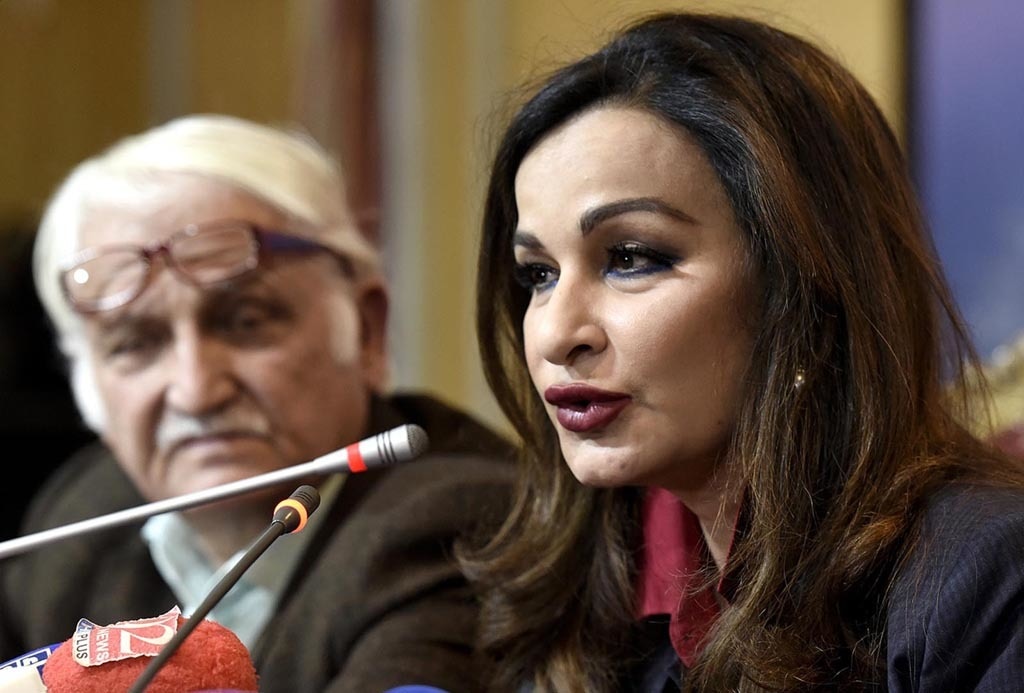Escalating violence in Afghanistan: Peace may be much further than imagined: Sherry
ISLAMABAD: Pakistan People’s Party (PPP) Vice President and Chairperson of Foreign Affairs Committee in Senate, Senator Sherry Rehman said Pakistan had the highest stakes in peace in Afghanistan, but the geo-politics of escalating violence next door indicates that peace may be much further than imagined. “On the rapidly evolving situation in Afghanistan, there should be no doubt in anyone’s mind that this issue will impact Pakistan hard in more critical ways than one. In this scenario, clear, focused policy-making at home will have far-reaching consequences for the security, stability and economic health of the country,” she expressed these views, while talking to journalists here on Tuesday.
The PPP leader said that foreign policy could not be predicated on mood-swing statements, or the personal likes or dislikes of any individual.
It is pure statecraft which must reflect the institutional expression of state interests as well as the political will of the people of Pakistan.
She said, “Big decisions need big leaders who can sublimate their ego to public interests and institutional tradecraft, not just reach out to mass media via tweets and TV addresses. As Pakistan faces one of the worst emerging regional situations in decades, the first test of its foreign policy is to not lock itself into policy straitjackets, but to be able to navigate a fine balance between friends and frenemies.”
She said that clarity and consensus were needed for any foreign policy to be successful, especially if policy agendas were focused on protecting a country’s interests and people, which involved managing competing interests and ideas. “Why should Pakistan be different?” she asked, saying that “in times of crisis, leadership is crucial to policy formation as well as its smart articulation.”
She said that unfortunately, at key inflection points for the country, the prime minister, who should have the convening power and accompanying goodwill to craft unity and consensus via political parties and parliaments, was absent.
“It is as if he feels he can outsource vital decisions that will test Pakistan, to other cabinet members and the security community, who should not have to go it alone when trying to chart a way forward for the country in the institutional vacuum he has created in Pakistan. In war or peace, a country needs a leader who can speak with moderation and intellectual integrity with parliament in order to manage crisis or create new paths for development,” she said.
She said Pakistan seemed rudderless at the moment, with the prime minister only using his office to swing from one extreme position to another.
Answering a question, she said, “We would have to reinvent no wheel. We already have a framework in place through which the National Security Committee of both Houses of Parliament came into being as a result of consensus resolution to defeat violent extremism and terrorism in 2008. This resolution was framed as an outcome of the joint session of parliament which took place after a series of bombings, including the attack on Hotel Marriot, and this very resolution authorised the National Security Committee of Parliament to continue meetings, briefings, deliberations and decision-making which reflected the shared stakes of all parliament, which represents all of Pakistan.”
She said there was a tightening of the international community circle around Pakistan with reference to the FATF, GSP plus benchmarks, among other multilateral exposure windows, and despite the volume of our messaging, India would not be put to the same standard.
She said in a non-level global playing field, Pakistan would need maturity and political depth to manage best outcomes.
“We also need to utilise the CPEC opportunity better, and move forward with our all-weather friends with greater consistency and stability in our responses. No friend, no matter how supportive they are, should be taken for granted.
The PPP knows all this, as its Chairman Bilawal often says, put our own house in order first. The rest will follow,” concluded PPP Parliamentary Leader in the Senate, Senator Rehman.
Copyright Business Recorder, 2021




















Comments
Comments are closed.